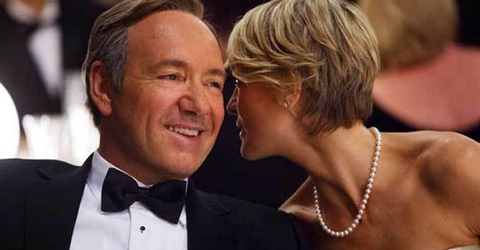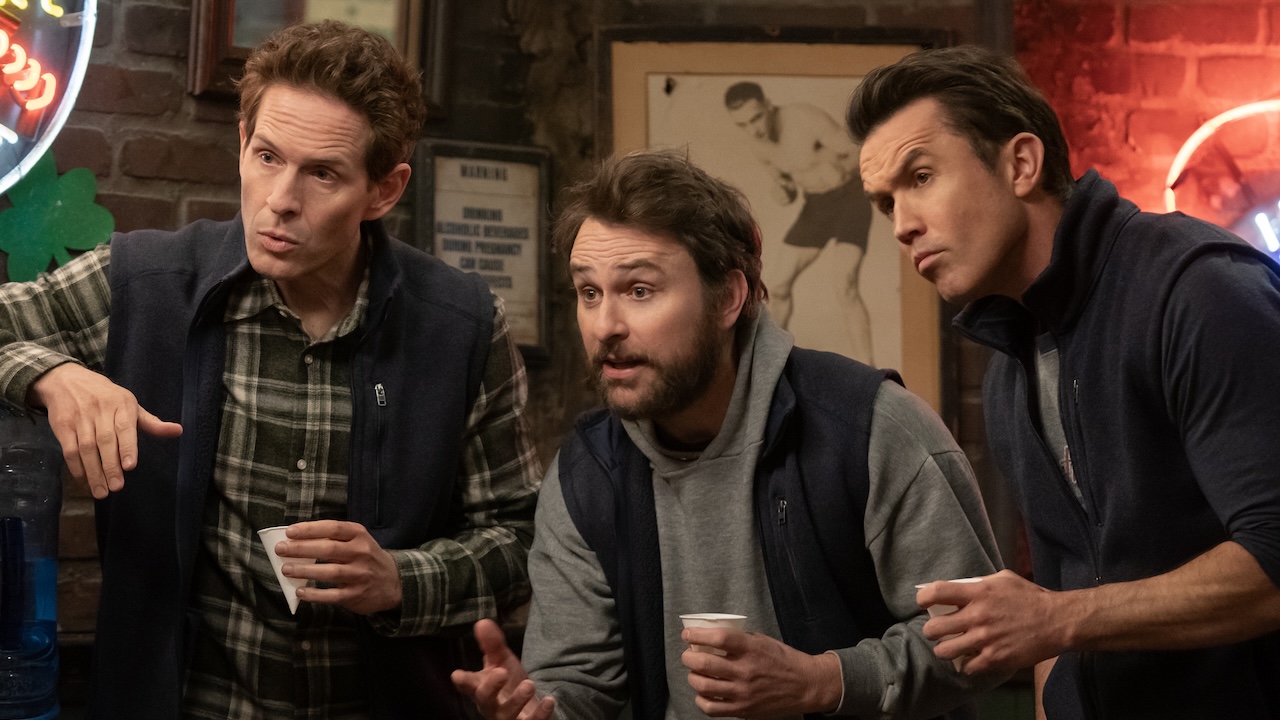Why I'm Glad I'm Waiting To Finish Watching House Of Cards

Your Daily Blend of Entertainment News
You are now subscribed
Your newsletter sign-up was successful
I started watching House of Cards in a way I've never started watching a TV show before: on a big screen. It was the tail end of an international road show that the series creators had been doing, presenting the first two episodes of the much-hyped Netflix effort to bloggers and Netflix employees and plenty of other people, I'm sure. Settling into a private screening room with popcorn and M&Ms was definitely an odd way to jump into a TV series, but it's pretty fitting for House of Cards, which in both content and execution is like nothing else on either TV or at the multiplex.
It also happens to be the exact way that I started The Wire, in a way. I dove into that hugely acclaimed series a few years ago on DVD, watched two episodes, and then took a break. A much longer one that I have on House of Cards at this point. It took a lot of bolstering and a lot of promises of "stick with it, we promise" for me to carry through on The Wire, which I then loved, as everybody promised. The Wire is a little denser than House of Cards, and a whole lot less soapy in its initial episodes, but they still provide the same hurdle to instant addiction. Both shows throw a lot of characters at you at once, ask you to invest deeply in and understand very insular institutions, and then set in motion action that will only pay off many, many episodes down the line.
I'm making assumptions on behalf of House of Cards on that last part, but just like The Wire, there's become enough of a drumbeat around this one that says it's worth seeing through to the end. What's amazing about this time is how fast it's happened. The strategy of releasing all 13 episodes online at once has encouraged binge watching among both TV watchers and curious fans, which has made for an immediate gulf between people like me-- who checked out two episodes and are waiting to tackle the rest-- and the devoted who have already wrapped the whole thing up. I was on Twitter a lot over the weekend and saw people tweeting about watching the show, a lot of them going from "I'm not so sure I'm into this" to "I am staying up until 4 a.m. to finish this" in the span of a few hours. Everyone has refrained from spoilers so far, which is admirable. But I know that's not going to last for long.
And, truthfully, I'm OK with that. Netflix knows that many of the people will watch House of Cards the way that I have watched The Wire, months or years after it first airs, with all the cultural conversation around it having died down. As someone who loves participating in that cultural conversation, there's a part of me that wants to catch up right now, so I can write my own think pieces about what happens in episode 8 or whatever. But I accept that spoilers will be part of the experience, the same way they have been for The Wire and they will be when I finally catch up on Breaking Bad or Friday Night Lights. It's almost impossible to catch everything that's great the first time it's on TV, and the better TV gets, the more that will be true. In a way, House of Cards has just leveled the playing field-- with no one watching simultaneously, there's no assumed audience to tweet your reactions to, so it's best just to keep quiet.
I don't know if it makes me lazy or discerning that I tend to wait for the buzz from others to dive into something as time-consuming as a TV show. But House of Cards has proven that's definitely my method of choice, and thanks to all the happy customers out there I'm already finding myself forgiving things from the first few episodes that bugged me, like the baffling tech-phobia of Zoe's colleagues at the Washington Herald or Kevin Spacey's slippery Southern accent. The cultural current on House of Cards is broader and slower than it is for most shows-- but that makes it even easier to slip right in.
Your Daily Blend of Entertainment News
Staff Writer at CinemaBlend

